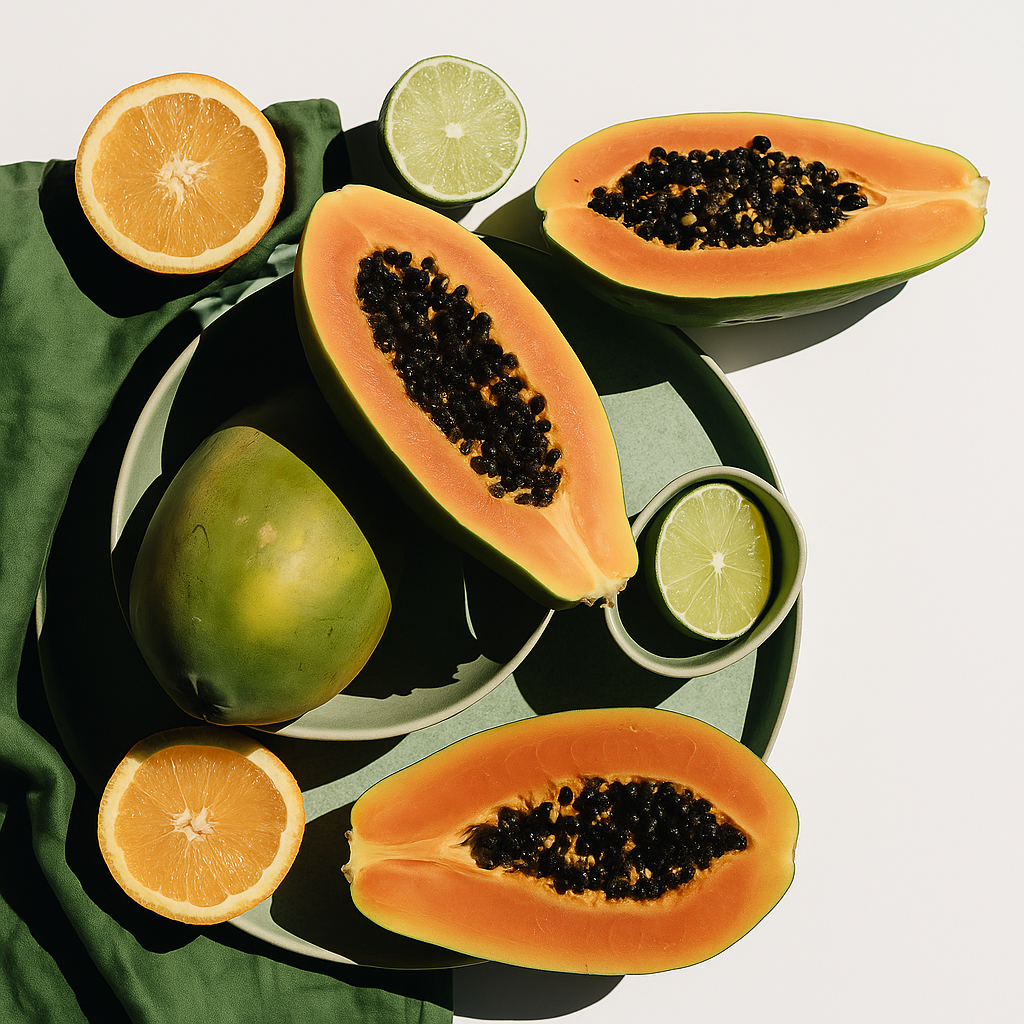
Eat for Longevity
Share
Eat for Longevity
How a Nutrient-Dense Diet Fuels a Healthier, Longer Life
When people think about ageing well, they often look to the latest supplement, tech or trend. But if there’s one foundation that underpins every other pillar of longevity, it’s this: what you eat shapes how you age.
At The Age Well Co., we believe food is far more than fuel. It’s information for your cells — and a daily opportunity to support your energy, immunity, cognitive health and cellular repair.
In this article, we’ll break down what a nutrient-dense diet really means, why it matters for longevity, and how to make it simple and sustainable.
What Is a Nutrient-Dense Diet?
A nutrient-dense diet focuses on maximising the amount of vitamins, minerals, antioxidants and fibre you get from every bite — while minimising ultra-processed foods, added sugars and empty calories.
Rather than focusing on restriction or calorie counting, this approach is about abundance and quality. It’s about choosing foods that are rich in the raw materials your body needs to thrive.
Why Nutrient Density Matters for Ageing
As we age, our bodies:
-
Become less efficient at absorbing certain nutrients
-
Require more antioxidants to combat increased oxidative stress
-
Experience natural changes in metabolism and hormonal balance
-
Need extra support for DNA repair, mitochondrial health and immune defence
Eating nutrient-rich foods gives your body the tools to slow cellular damage, support regeneration and reduce the risk of age-related conditions.
The Longevity Plate: What to Eat More Of
Here’s a simple, science-backed way to build a nutrient-dense plate:
🥦 Colourful Vegetables
Rich in fibre, phytonutrients and antioxidants that fight inflammation.
Aim for a variety — think leafy greens, cruciferous veg, aubergines, carrots and peppers.
🫘 Legumes and Whole Grains
A great source of plant-based protein, fibre and B vitamins.
Include lentils, chickpeas, black beans, quinoa, brown rice and oats.
🥑 Healthy Fats
Support brain health, hormone production and inflammation control.
Focus on extra virgin olive oil, avocados, nuts, seeds and oily fish like salmon or sardines.
🍇 Low-Glycaemic Fruits
Berries, apples and citrus fruits offer antioxidants without blood sugar spikes.
🍳 Quality Proteins
Crucial for muscle maintenance, repair and satiety.
Choose eggs, sustainably sourced fish, lean meats or plant-based proteins like tofu and tempeh.
🧂 Fermented Foods & Spices
Include kefir, sauerkraut, kimchi and natural yoghurt for gut health.
Turmeric, ginger, cinnamon and garlic offer powerful anti-inflammatory effects.
What to Eat Less Of (Without Obsessing)
While no food needs to be off-limits forever, limiting the following helps reduce inflammation, oxidative stress and metabolic disruption:
-
Highly processed foods and refined oils
-
Excess added sugar and sugary drinks
-
Artificial additives and ultra-processed snacks
-
Excess alcohol
-
Processed meats with preservatives
5 Simple Habits for Long-Term Success
-
Plan around plants — base meals on veg and add protein or grains second.
-
Cook at home when possible — so you control the ingredients.
-
Batch-prep staples like roasted veg, legumes and grains to mix and match.
-
Eat mindfully — slow down and notice how foods make you feel.
Nutrient-Density + Supplementation = Stronger Together
Even with the best diet, some nutrients are hard to get in optimal amounts — especially as we age. That’s where targeted supplementation comes in.
Our NAD+ Booster with Nicotinamide Riboside is designed to support cellular energy and DNA repair alongside a nutrient-rich diet. It’s not a replacement — it’s a powerful addition to the foundations you build through food.
Age Well, One Meal at a Time
A nutrient-dense diet doesn’t have to be restrictive or complicated. It’s about making better choices, most of the time — and understanding that each meal is a chance to nourish the future you.
Coming up next on the blog:
We’ll explore the science of movement and longevity — why strength, cardio and flexibility all matter, and how to build a routine that supports your healthspan.
Until then, keep eating with intention.
Your cells will thank you.